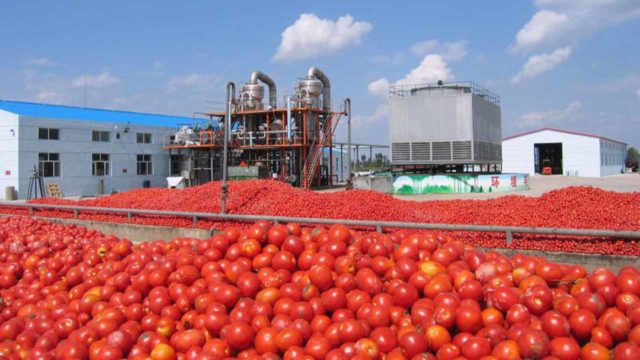By Kenneth Afor
Nigeria’s leading agriculture value chain firm, Olam, has partnered with World Vegetable Centre, a renowned research institute, seed producer and developer to help supply 18 varieties of tomato seeds in the firm’s newly acquired 20 hectares farmlands in Kano and Jigawa states in other to ramp up the country’s annual production capacity.
According to Rejig George, vice president in charge of farming initiatives, the strategic partnership between both firms will enable Olam through its subsidiary, Caraway Africa Nigeria Limited produce about 30 metric tonnes of fresh tomatoes per hectare in each farming cycle from the farms in Karfi in Kano State, Masama and Guri in Jigawa State. The company started production in Kano and Jigawa in October 2019.
“We have decided to go for an additional eight varieties of hybrid tomato seeds already existing in Nigeria which have higher yield potential, but which the farmers are not using because of the cost. We have selected tomato seed varieties which produce fresh tomatoes as well as the variants which are good for tomato processing,” said George.
Over the years, the country’s tomato production has been facing consistent challenges such as inadequate good seed varieties for farmers which have resulted in poor yields. Poor storage techniques and lack of funds for farmers to purchase better varieties have also limited farmers from meeting the required market demand.
The Olam and World Vegetable Centre partnership could triple the country’s annual production of tomato which is currently about 2.3 million metric tonnes in deficit.
George added that during the course of the year, the firm seeks partnership with developmental organisations to draft 1,000 tomato farmers across the county, in its out-grower programme as it plans to acquire 500 hectares of farmland solely for tomato production adding that processing of tomato will commence in February 2021.
According to Mohammed Saulawa, manager, Abur Farm, owned by Olam Nigeria in Jigawa State, farmers around can attest to the level of quality yield of the tomato due to the application of modern farming techniques.
“They have seen the difference in terms of the fruit size and the agronomic practices that we have employed here which are not the conventional farming practices that they are used to. You can keep the tomato variety for a week without it getting spoilt, unlike what the farmers take to the market which decays by the second day. They have seen how we apply fertilizer and how we are consistent with our spray regime. They are visiting the farm to understudy and see how they can replicate these methods in their own farms,” said Saulawa.








